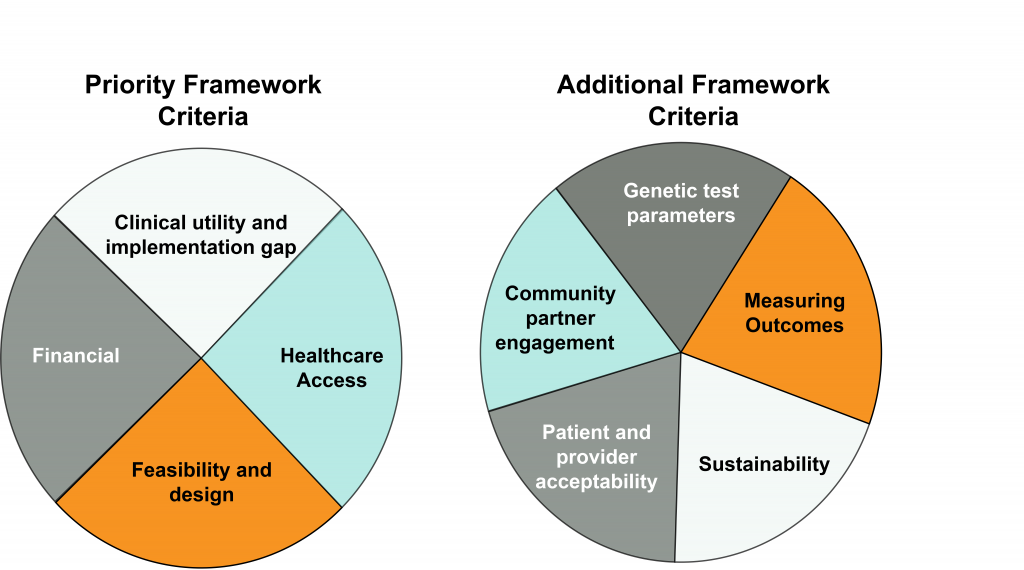Project Selection Framework
The gLHS Network created a project selection framework to evaluate and select proposed projects for network-wide implementation. The project selection framework provided guidelines to evaluate proposed projects based on four priority criteria and five additional criteria.

Project 1: Increasing Germline Genetic Testing for Patients with Cancer
Overview
The first network project selected is Increasing Germline Genetic Testing for Patients with Cancer.
Germline testing for individuals with a cancer diagnosis can: 1) inform patient treatment such as targeted therapies, 2) guide surveillance for early detection of other cancers, and 3) guide cascade testing for family members. Despite this, germline testing for hereditary cancer within current clinical practice is underutilized across most healthcare settings.
The goal of the project is to close the implementation gap for hereditary cancer predisposition testing by focusing on implementation strategies to increase guideline-concordant germline genetic testing by medical oncology care teams rather than genetic consultation referrals (i.e., ‘mainstreaming’). In the ‘mainstreaming’ model, frontline clinicians are responsible for pre- and post-testing care for patients, which can reduce the time, cost, and disruptions and care which are associated with the traditional genetic consultation referral model.
Study Design
An Interrupted Time Series (ITS) design will be used for the study, and the target population is clinician members of oncology care teams who care for adult patients with breast, colorectal, or pancreatic cancer.
Implementation strategy bundles were designed to address multi-level determinants of mainstreaming of germline genetic testing reported by a majority of the clinical sites. The study will have three implementation phases, each approximately 6 months in length, followed by a 12 – 24 month maintenance phase to assess persistence of any effects.
Study outcomes will be assessed using the REAIM QuEST framework and address outcomes related to Reach, Effectiveness, Adoption, Implmentation, and Maintenance.
Project 2: Point of Care Cardiomyopathy Genetic Testing
Overview
The second network project selected for implementation is Point of Care Cardiomyopathy Genetic Testing. The protocol is under active development, and study details are subject to change.
Genetic testing for cardiomyopathy is recommended to facilitate risk management and stratification, treatments, and family cascade testing. Despite the clinical utility, there is still a large implementation gap for guideline recommended cardiomyopathy genetic testing.
The project aims to evaluate the uptake of genetic testing for primary cardiomyopathy through the implementation of clinical decision support (CDS) tools and other implementation strategies informed by a network-wide analysis of barriers and facilitators.
Study Design
Study outcomes may include percentage of patients with genetic testing ordered and completed, fidelity to implementation strategies, percentage of clinics participating, and sustainability after active implementation period.
